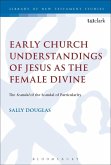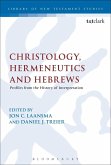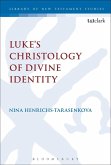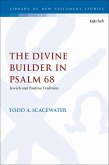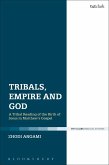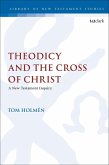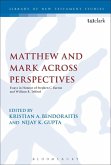The theme of divine speech appears at the opening of the Hebrews (1.1-2) and recurs throughout the book, often in contexts suggesting connections to other areas of scholarly interest (christology, soteriology, cosmology, and the writer's understanding of the nature of his discourse). Griffiths begins with a consideration of the genre and structure of Hebrews (offering a new structural outline), concluding that Hebrews constitutes the earliest extant complete Christian sermon and consists of a series of Scriptural expositions. Griffiths then turns to consider Hebrews' theology of divine speech through an exegetical analysis of eight key passages (with particular attention to the writer's use of the terms logos and rhema), and finds that, for the writer, God's speech is the means by which the place of divine rest is accessed, and is supremely expressed in the person of his Son. Griffiths concludes that the writer presents his sermon as communicating the divine word and effecting an encounter between his hearers and the God who speaks.
Analysis of the exegetical data shows that Hebrews presents God's word, which finds full expression in the incarnate Christ, as the central means by which salvation is made available and the place of divine rest is accessed. The study finds that the terms logos and rhema are used with a high degree of consistency to signify forms of divine speech, logos usually signifying verbal revelation (and three times specifically identifying the author's own discourse) and rhema typically signifying non-verbal revelation in the cosmos. The investigation leads to the ultimate conclusion that the author believes that, through his discourse, he himself communicates that divine word and effects an encounter between his hearers and the God who speaks.
Analysis of the exegetical data shows that Hebrews presents God's word, which finds full expression in the incarnate Christ, as the central means by which salvation is made available and the place of divine rest is accessed. The study finds that the terms logos and rhema are used with a high degree of consistency to signify forms of divine speech, logos usually signifying verbal revelation (and three times specifically identifying the author's own discourse) and rhema typically signifying non-verbal revelation in the cosmos. The investigation leads to the ultimate conclusion that the author believes that, through his discourse, he himself communicates that divine word and effects an encounter between his hearers and the God who speaks.



